November 2016
Executing Grace
29/11/16 16:42
Shane Claiborne, Executing Grace: How the Death Penalty Killed Jesus and Why it's Killing Us (New York: Harper One) 2016.
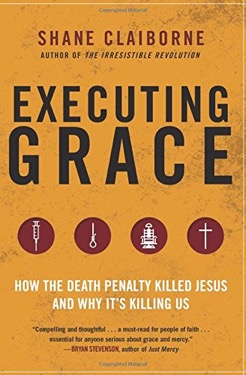
Above all else, this is a book of real stories of real people. The stream of names printed across the bottom of every page represents those who have been killed by the death penalty in society's attempts at justice. The stories of victims, of those on death row, of the exonerated, and of the prison wardens and staff who participate in the system paint a picture of a system that is in need of revision and restoration.
This book is a "must-read" for people of faith who are serious about bringing their faith to the pressing social issues of our time. Those who are serious about grace and mercy need to carefully read his biblical analysis and consider the stories he tells.
This is a book that I will recommend to others often.
The First Paul
29/11/16 16:32
Marcus J. Borg and John Dominic Crossan, The First Paul: Reclaiming the Radical Visionary Behind the Church's Conservative Icon (New York: Harper One) 2009.
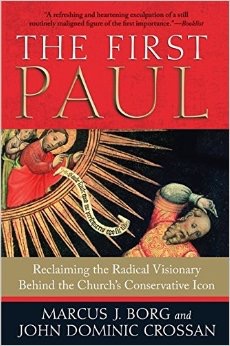
It is helpful to view Paul in his first-century context against the background of Roman imperial power offering an alternative way of life and an alternative way of viewing the world.
The book is very readable and accessible to those who are not scholars as well as to those who are students of the Epistles.
Barren Grounds
24/11/16 06:44
Fred "Skip" Pessl, Barren Grounds: The Story of the Tragic Moffatt Canoe Trip (Hanover, New Hampshire: Dartmouth College Press) 2014.
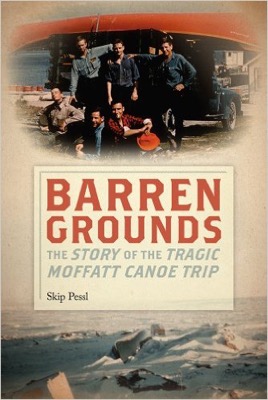
Having already read Grinnell's "Death on the Barrens," I found Pessl's account to contain many important details, including more accurate descriptions of the route and activities of the explorers. It is a compelling account.
However, the book is somewhat diminished by its epilogue. Pessl still carries a great deal of intense anger and unresolved grief over the death of Moffatt and in the epilogue he directs that anger against Grinnell. He tries to make a point by point refutation of Grinnell's book, but only succeeds in making a point that most readers already know - different people have different memories of shared events. The decades between the actual events and the publication of the books has resulted in different perspectives, different memories, and different interpretations. Instead of letting his excellent book stand on its own and be the authentic record that it is, Pessl wades into his anger and criticism of Grinnell. It is as if he doesn't trust his own account to stand on its own merits.
That aside, I heartily recommend this book to all who are interested in canoe expeditions, wilderness exploration and the remote areas of Northern Canada.
Death on the Barrens
21/11/16 17:44
George James Grinnell, Death on the Barrens: A True Story of Courage and Tragedy in the Canadian Arctic (Berkeley, California: North Atlantic Books) 2016 edition.
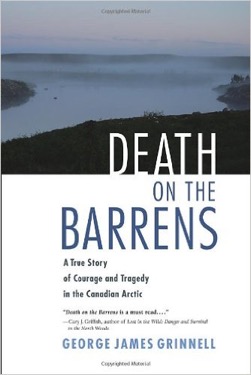
It took more than 40 years after the expedition for Grinnell to write his book. And, apparently his book sparked something in another of the expedition's participants, Fred "Skip" Pessl, to write his own account of the journey in a book that came out from Dartmouth College Press in 2014. I am currently reading that book and will review it here when I have finished it.
Grinnell's book is based on his own memories and doesn't seem to be based on the journals of other participants in the trip and I'm sure that the story is told with a bias. Nonetheless, the reality is that a tragedy occurred that might have been prevented, but to which no particular blame can be laid. The loss of Arthur Moffatt might not have occurred in this day of better equipment, satellite phones, helicopter evacuation and other safety nets. The complete isolation and self reliance of the team, however, is part of what made the expedition such a great adventure.
Others have ventured into the Barrens since, and I've read several other accounts of expeditions and explorations in the region, but Grinnell's account of the expedition should hold the interest of anyone interested in canoe camping and expeditions.
Becoming Wise
21/11/16 17:30
Krista Tippett, Becoming Wise: An Inquiry into the Mystery and Art of Living (New York: Penguin Press) 2016.
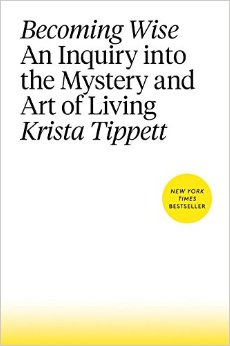
I guess I understand her movement away from the perspective of an established religion to a broader and more open conversation, but i sort of miss the old "Speaking of Faith" approach in which she was open in her explorations of faith. Frankly I thought the section on Love was a bit light weight. She had already done a section on Flesh in which she spoke of embodiment and human existence so I had hoped that her section on love might be a bit less focused on romance and more on deep, connected relationships that endure over time. It is possible that her divorce has colored here opinion about commitment and promise, but a discussion of love that completely ignores those factors left me wanting more.
All in all, however, it is a significant book and a good contribution to a field that is in need of more thoughtful writers in our particular time. Her discussions are important and I marked dozens of passages to which I will return as I explore my own writing and thinking.
Beauty is a Verb
21/11/16 16:25
Jennifer Bartlett, Sheila Black, & Michael Northen, ads., Beauty is a Verb: The New Poetry of Disability (El Paso: Cinco Puntos Press) 2011.
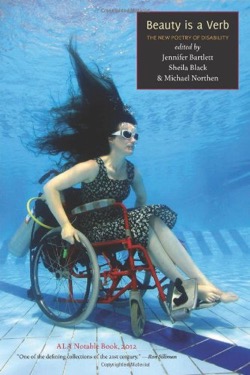
The book is overwhelming in many different ways. First of all, the poetry demands attention. The density of words, the wondering about tonality and how the author might read the poems means that a serious reader reads each poem multiple times. It is overwhelming in its poetic density. There is a lot of poetry in this book. But it is also overwhelming in its scope. Disability is far from a single category. The wide range of disabilities represented draws in virtually revery reader. At some point in the book, I suspect most readers will experience what I did: a sense that I have or will develop that particular disability. There are many authors whose lives are marked by disabilities that are visible and of which we are aware: those who use crutches or wheelchairs for mobility, those who are blind, those who have cognitive disabilities, those who cannot hear. But there are also those whose disease causes intense pain or an unpredictability of their lives.
The result is an amazing collection and a very readable and important book. I think this collection serves to define a new genre of poetry for the 21st Century. I'm delighted and looking forward to more poetry of disability to provide the artistic window through which we can look at our lives.
For the Time Being
19/11/16 18:25
W. H. Auden, For the Time Being: A Christmas Oratorio (Princeton, NJ: Princeton University Press) 2013 edition
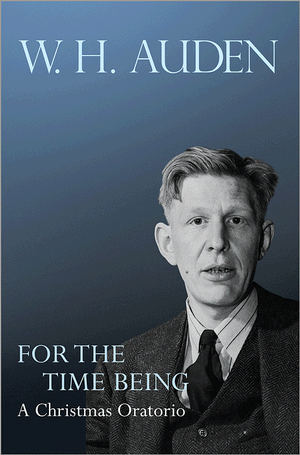
Auden wrote this oratorio before he was fully accomplished in idiomatic English. It shows awkwardness in a few places, but the thing that impressed me the most was the sheer density of the language. I tried reading it silently, but it was just too confounding to even follow the flow of the words without the sounds and rhythm of reading out loud. I worked my way slowly through the oratorio, trying to imagine the various characters and how the piece might be stages, though stage productions of the work are virtually unheard of.
Striking and even stunning is the monologue (with chorus) of Simeon. The language is so dense and complex that I found myself seeking someone to read the piece to that together we might unpack some of its meaning. Similarly dense is the explanation of the killing of the innocents and the flight to Egypt.
All in all, it is a masterful blending of the contemporary and the ancient in a retelling of the Christmas narrative that takes a look at the feelings of the participants.
Frankly, I can't imagine staging the play. I can't even imagine what it would be like to listen to it all in one sitting. I suspect that it is just too dense, too rich and too wordy to carry its meaning in such a setting. As an epic poem, however, it is worthy of a careful read. In fact, it left me thinking that one day I will need to read it again just to see what I missed on the first trip through.
Healthy Boundaries
19/11/16 16:34
Faith Trust Institute: Healthy Boundaries 101 - Fundamentals: A Course for Clergy and Spiritual Teachers (Seattle, WA: Faith Trust Institute) 2012
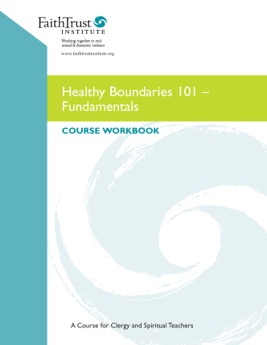
Perhaps an extra discussion could be added that would focus on some of the areas where we clergy have less experience such as the ethics and boundaries of retirement or healthy boundaries in political discussions and election-year preaching. I think that if I were given time, I could find quite a few areas of ethical discussion that would be meaningful and worthy of consideration.
Nonetheless, the book is well done and should be required reading for all clergy, not just those of us who serve in mainline denominations.
Collected Poems of Robert Service
18/11/16 19:11
Robert Service, Collected Poems of Robert Service (New York: G.P. Putnam's Sons) 1940.
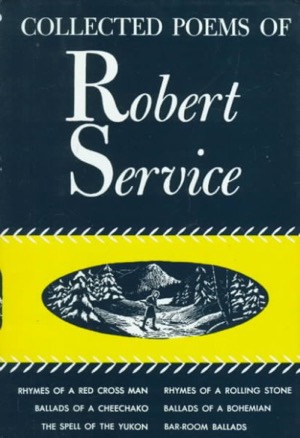
Buried in the middle of the text is a bit of commentary by Service himself with which I have to agree: "I am not fool enough to think I am a poet, but I have a knack of rhyme and I love to make verses. Mine is a tootling, tin-whistle music." (p. 432). This is not the poetry of a sage or of a prophet, but rather the rhymes of a storyteller. It is a bit of tin-whistle tootling, but my-o-my what a lot of tootling it is.
At least I can say I've read all of the Robert Service that I could get my hands on and I won't have to return to his poetry again for a long time.
Biblical Literalism: A Gentile Heresy
18/11/16 18:50
John Shelby Spong, Biblical Literalism: A Gentile Heresy (New York: Harper One) 2016.
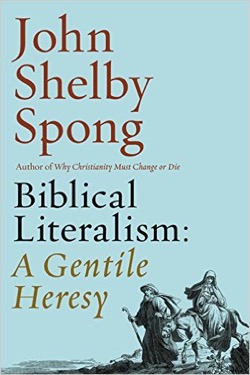
Nonetheless, this is an excellent book with some challenging ideas that requires careful reading and thinking and opens the reader to new ways of understanding the Gospel narratives. His challenge to Biblical literalists is real and his case against applying their techniques to interpretation is strong.
It is often the case when scholarship pushes the limits of my understanding and challenges some of my preconceived notions that my approach is shifted by reading the works of the scholars. It will be true in this case, as well. I'll probably never return to all of my previous understandings of the Gospel of Matthew. And I'll probably keep Spong's book handy for future readings, study and preaching on the text.
Gone in a Heartbeat
14/11/16 18:11
Neil Spector, M.D., Gone in a Heartbeat: A Physician's Search for True Healing (Oxford, Mississippi: Triton Press) 2015
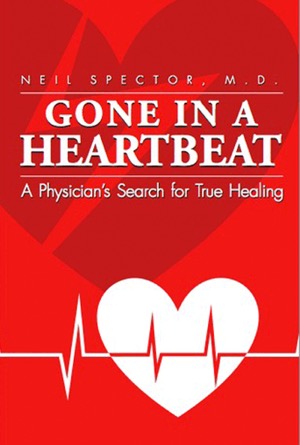
Interesting and alarming is the story of how Dr. Spector, a highly recognized oncologist, was unsuccessful in getting his doctors to take his symptoms seriously. They kept labeling his troubles as stress, even though there was no evidence that he was not dealing with stress well. Their inability to take their patient seriously kept them from discovering the true nature of his illness. As I read, I kept thinking, "If a doctor can't get his doctors to listen to him, what chance does a layperson have?"
This book should be required reading for physicians in training. His approach to physician/patient relationships is a breath of fresh air in the world of contemporary medicine.
The Bad-Ass Librarians of Timbuktu
10/11/16 18:26
Joshua Hammer, The Bad-Ass Librarians of Timbuktu: and their Race to Save the World's Most Precious Manuscripts (New York: Simon & Schuster, 2016.
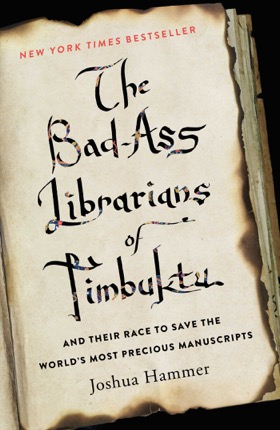
We always speak of Timbuktu as remote and isolated and dream of it as palace to visit once in a lifetime, but I don't think I would have been able to locate it on a map, or tell you the name of the country in which it is located, prior to reading this book. The genuine heroism of one man who knew how to enlist others in a very important task resulted in a close call, but the successful defense of countless irreplaceable historic manuscripts from what was nearly certain destruction by Islamic extremists. The adventures reported in the book keep readers engaged and gives a deep sense of the present day on-the-ground reality in Mali.
I don't say this about very many books, even those about which I am enthusiastic, but this book truly is a delight to read.
Truth Speaks to Power
10/11/16 17:53
Walter Brueggemann, Truth Speaks to Power: The Countercultural Nature of Scripture (Louisville, Kentucky: John Knox Press) 2013
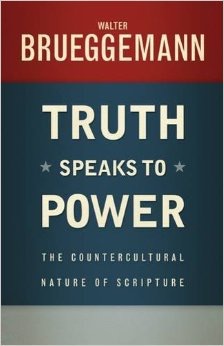
The Biblical answer to power is truth and the truth is conveyed in the words of Scripture. To discover the truth, however, requires more than an uncritical face-value reading of the sacred texts.
Based on a series of lectures delivered to a conference of the Episcopal Church, this book is easily accessible to lay people and clergy alike and would make an excellent starting point for a Biblical discussion.